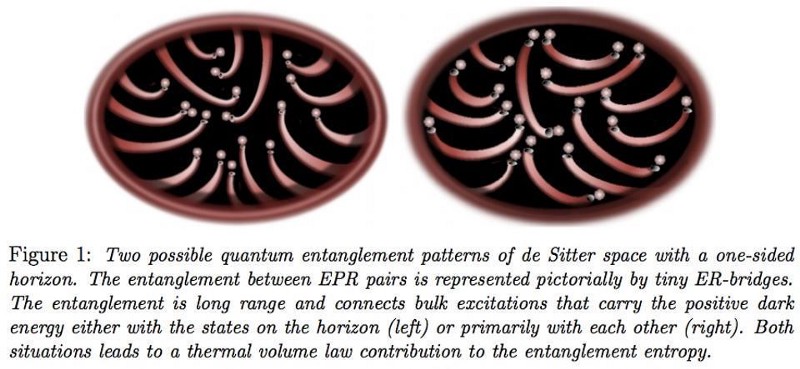The program picked up association biases nearly identical to those seen in human subjects.
Search Results
You searched for: Computers
Your mindset can rewind aging, physically and mentally, as these jaw-dropping experiments show.
A new paper suggests population size and migration explain the sudden bursts of innovation seen 50,000 years ago.
The theory could solve certain stubborn physics questions such as, where’s all the antimatter.
It’s a fascinating idea, but how does it fare as a scientific theory? “Something is happening here and this is going to have an impact.” –Robert Dijkgraaf, on Verlinde’s work The […]
Would there be only blackness past the event horizon? Or something more? Black holes are some of the most perplexing objects in the entire Universe. Objects so dense, where gravitation […]
Emotions are the language of the unconscious, and in day-to-day life, they prevent us from sinking beneath an overwhelming flood of information.
DEFCON hackers find it’s really easy to hack U.S. voting machines.
Between 1990 and 2003, the world saw the completion of one of the biggest international scientific collaborations that led to the creation of the The Human Genome Project. Now, another […]
Following 14,000 people since the 1940s, these cohort studies offer insights into parenting, education, health, and the impact of poverty.
Other tech unveiled includes a (somewhat creepy) AI personal photographer, new VR gear, and a very affordable mini assistant.
If you haven’t finished your holiday shopping yet, consider these 10 gifts, good any time of year! One of the hardest things when it comes to holiday shopping is to find […]
Facebook catches two AI chatbots talking in their own strange language.
Millennials, aka the generation of workers born between 1980 and 2000, are a bit different from previous generations. This is the first generation to grow up with the internet, Google, […]
Time crystals could even form stable qubits, making quantum computing possible.
Designed by two MIT professors, this build-it-yourself kit teaches kids to “think with their hands” in an effort to bolster STEM skills early on.
The smartphone is set to become the hub of your life, online and off, until this replaces it.
The 1971 cult classic Harold and Maude is an unlikely love story between a depressed 18-year-old Harold and a lively 79-year-old Maude who meet at a funeral. Given the rise is online dating and its impact on how couples unite, it is fair to ask: If Harold and Maude was set in 2017, would Harold pick Maude on Tinder?
Turns out, organisms may be using quantum mechanics to gain evolutionary advantages.
Known as Cunningham’s Law, it is the assertion that “the best way to get a right answer on the internet is to post a wrong answer.” It turns out our impulse to correct a wrong online may outweigh our desire to merely give answers.
Neuroengineering, defined as the application of engineering principles to neurological problems, then becomes how we engineer our relationship with existence itself.
The Finnish government is giving its citizens money, plain and simple. But what’s the catch? And will it work?
Imagine getting imperceptibly high, then playing Chinese strategy game ‘Go’. This is the experiment the Beckley Foundation will run to test the value of LSD microdosing.
A physicist demonstrates how life may be a predictable product of thermodynamics.
The computer it’s attached to can “see” potential hazards and alert the surgeon to them.
A well-deserved award for the discovery over a century in the making. “Well, I walked into Building 20 and looked in at the various little labs. There was a bunch of […]
Researchers are bringing together imaging and AI to understand the variations, causes, and potential treatments of depression.
Achieving liquid light at room temperature will boost research into quantum hydrodynamics.
A new brain-to-computer interface lets completely locked-in patients tell us how they feel for the first time.
Silicon Valley needs more diversity of thought and well-rounded thinkers. An interview with Scott Hartley, author of The Fuzzy and The Techie: Why the Liberal Arts Will Rule the Digital World.





























